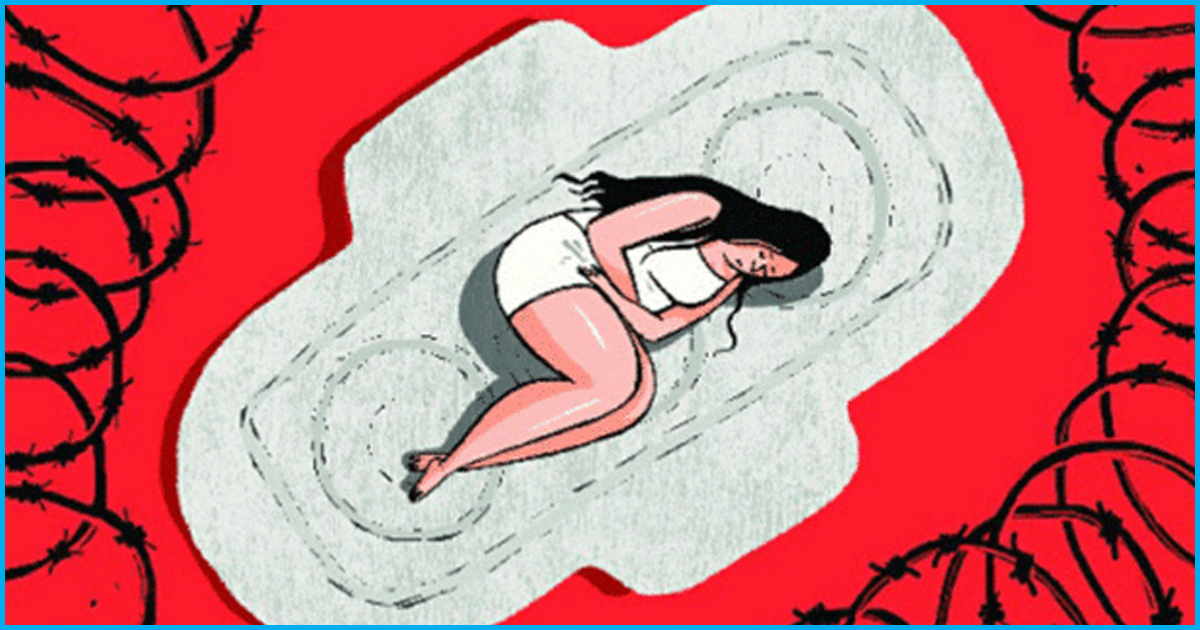Menstruation has a long history of taboos across almost all cultures, continuing to manifest in complex, subtle ways. It has long been associated with disgust, dirt, shame and fear. A menstruating woman is often considered impure and unclean.
As soon as puberty hits, women are taught how not to talk about their periods openly. If you need a pad, ask another woman in a hushed tone so that nobody gets to hear you and when you get it, put it in your pocket and hide it, they are told.
While most women have grown up being told the same things about menstruation. It is the men who almost remain clueless about the whats and whys of menstruation. The Logical Indian spoke to some men to know about their stance on menstruation.
âThere is nothing âimpureâ about it except our mindsâ
âThe stigma is easily explained. People are always appalled by bodily fluids, especially someone elseâs. And as usual, it was inflated out of proportions and made into something âdirtyâ, which it is not. Itâs natural and biological, and if you could educate people and let them know what it is, they would stop being grossed out by it, and maybe appreciate it as just a biological phenomenon. I first heard about it when I was 15-16 I guess. My first reaction was to thank my lucky stars that Iâm not a woman,â said Rohan Banerjee, a hardware engineer working with Samsung.
In schools, teachers in biology classes often tend to not stress on the subject of menstruation. Most of them just touch upon it and move on to the next chapter. This may not be true of all schools, yet many of our men seemed to have learnt about periods outside school.
âThe first time I was familiarised with menstruation was at the age of 17 when my mother asked me to buy pads for my sister. Everything stems down to education with respect to awareness about menstruation. Iâve been to chemist to buy pads on a number of occasions, so I wouldnât really think twice the next time. However, Iâm often met with very inquisitive eyes when I ask for pads which again goes on to show the lack of sensitivity prevalent among men with respect to this,â said Ronit Chowdhury, a student pursuing Chartered Accountancy.
Shubhagata Choudhury, an employee at GrabOn, had similar things to say. âThe first time I heard about menstruation was in class 6 or 7, in an ad that spoke about sanitary napkins. I asked my mom and she explained what menstruation is, how it works and how these napkins help. We, as a society, should accept that menstruation is a natural process. There is nothing âimpureâ about it except our minds. The social stigma is primitive in nature and if we truly believe that we are going to progress, we should educate ourselves and future generations about it,â he said.
âSabarimala verdict by the Supreme Court was a game changerâ
There is also the impact of religious views and teachings on menstruation. In several rural areas, women are banished to abandoned huts due to their âimpurityâ while they are menstruating. Taking the Sabarimala conflict for instance, despite the Supreme Courtâs verdict to allow women of all ages to enter the temple, scores of people took to the streets to stop women from doing the same.
âI feel the Sabarimala verdict by the Supreme Court was a game changer but the stance taken by a section of religious fundamentalists and unfortunately the central government clearly indicates the problem at hand and explains why we still have a long way to go. But on the plus side, I think things are changing. There are more and more people talking about periods and their associated taboos, there are films and documentaries being made on the issue. This I believe is having a positive effect on society,â said Akash Pyne, a student of Presidency University, Kolkata.
âItâs as normal as buying an ointment for your female friend if sheâs accidentally cut herselfâ
From a very young age, young girls are told to manage themselves while on their period discreetly and privately. For women of an entire range of several different cultural groups, the major concern related to menstruation is concealment. This, to a large extent, affects how women feel about their bodies, and not only menstruation.
âWe need to encourage candid conversations surrounding womenâs health; conducting sessions on gender, sexuality, and menstrual hygiene management will help young children (both male and female) understand menstruation as a clean and natural biological process. Like an everyday object, people â irrespective of gender, caste and creed â around the globe need to treat sanitary napkins as indispensable part of everyday life. In addition, availability of sanitary napkins in first-aid boxes may prove helpful to a girl who has started menstruating before her usual date,â said Siddhartha Mukherjee, who is pursuing Masters in English from Kolkataâs Maulana Azad College.
âThis taboo around anything to do with sex needs to stopâ Another long existing problem surrounding menstruati…












